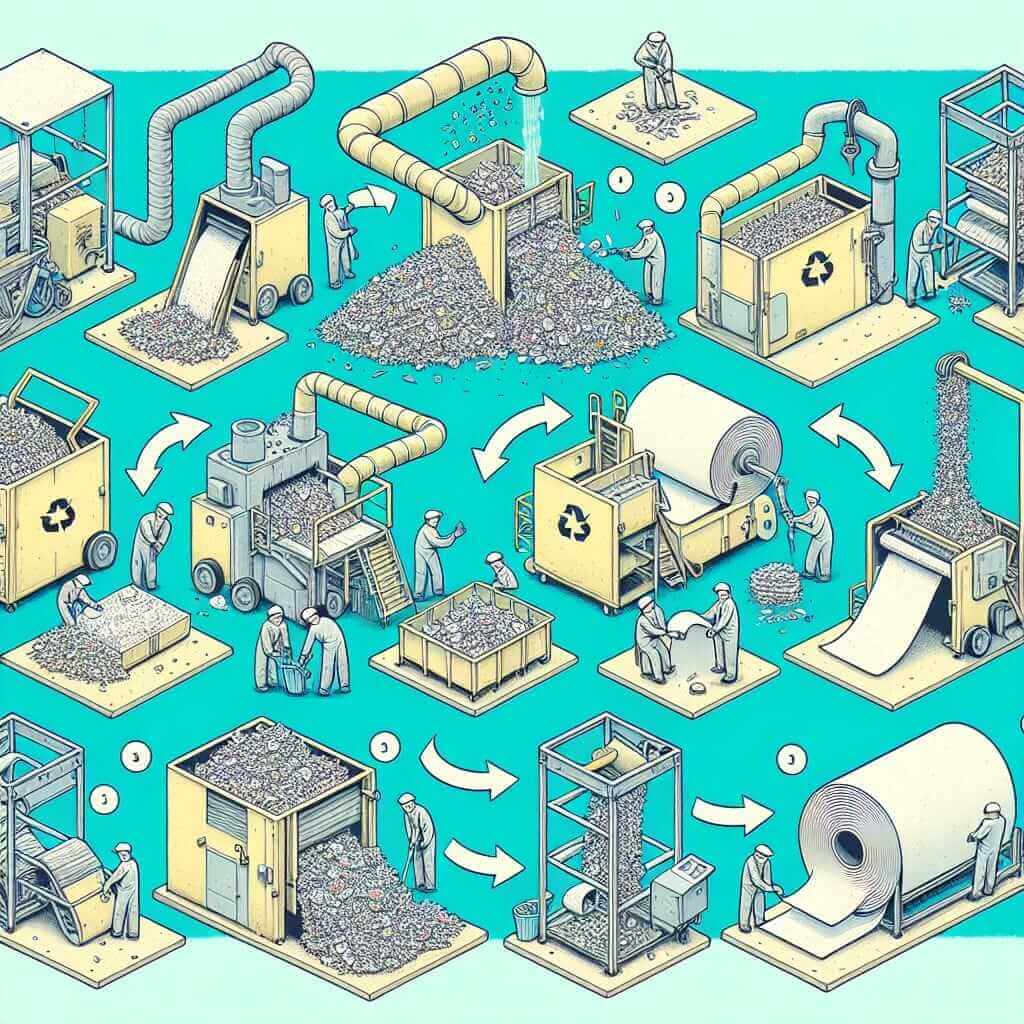As an IELTS instructor with over 20 years of experience, I often encounter students who underestimate the importance of expanding their vocabulary beyond simple terms. Knowing synonyms and having the ability to discuss specific topics in depth can significantly boost your score in all sections of the IELTS exam, particularly in the Speaking test. Today, we’ll focus on the topic of recycling, specifically “recycling old paper,” and explore how you can effectively incorporate this vocabulary into your IELTS Speaking exam.
Why Talking About Recycling Matters in IELTS
The IELTS Speaking test assesses your ability to communicate effectively in English. Examiners are looking for a wide range of vocabulary, accurate grammar, and fluency. Topics like recycling are relevant to current global issues and demonstrate your awareness of environmental concerns.
Mastering Vocabulary Related to Recycling Old Paper
Let’s break down some essential vocabulary related to recycling old paper:
Instead of “Old Paper,” consider:
- Waste paper: This is a more formal and common term in English.
- Paper waste: Equally acceptable, it emphasizes the “waste” aspect.
- Scrap paper: Refers to paper that is no longer needed or usable for its original purpose.
Instead of “Recycle,” try these verbs:
- Process: “Paper is processed to create new products.”
- Reprocess: “Recycled paper can be reprocessed several times.”
- Pulp: “Old paper is pulped and then made into new paper.”
- Salvage: “Valuable materials can be salvaged from waste paper.”
- Divert from landfill: “Recycling helps to divert waste from landfills.”
Other Useful Terms:
- Paper mill: A factory that produces paper.
- Recycling bin/container: Where you dispose of recyclable materials.
- Curbside recycling: A system where recyclables are collected from homes.
- Environmental impact: The effect that something has on the environment.
- Conservation: The protection of natural resources.

Incorporating Recycling Vocabulary in Your Speaking Test
Part 1: Short Answers
- Examiner: Do you recycle?
- You: Absolutely! I always make sure to separate waste paper and put it in the recycling bin for curbside collection. I believe it’s crucial to reduce our environmental impact.
Part 2: Individual Long Turn
- Describe a time you did something to protect the environment.
- You: I’m quite passionate about recycling, and I’ve made a conscious effort to reduce my paper consumption. I opted for digital subscriptions instead of newspapers and started printing double-sided whenever possible. I even convinced my family to switch to recycled paper products!
Part 3: Two-Way Discussion
- Examiner: What are the benefits of recycling for society?
- You: Recycling, particularly paper recycling, conserves natural resources like trees. It also reduces the amount of waste going to landfills, which are major contributors to pollution. Furthermore, it promotes a sense of environmental responsibility within communities.
Tips for Success
- Practice using the vocabulary: Incorporate these words and phrases into your daily conversations and practice speaking responses.
- Stay informed: Read articles about recycling and environmental issues to expand your knowledge and support your answers with facts.
- Be natural and confident: The examiner is evaluating your communication skills, so speak clearly and confidently, using the vocabulary you’ve learned.
Remember, success in the IELTS Speaking exam relies on clear and effective communication. By expanding your vocabulary and confidently discussing topics like recycling, you can demonstrate your language proficiency and achieve your desired score.